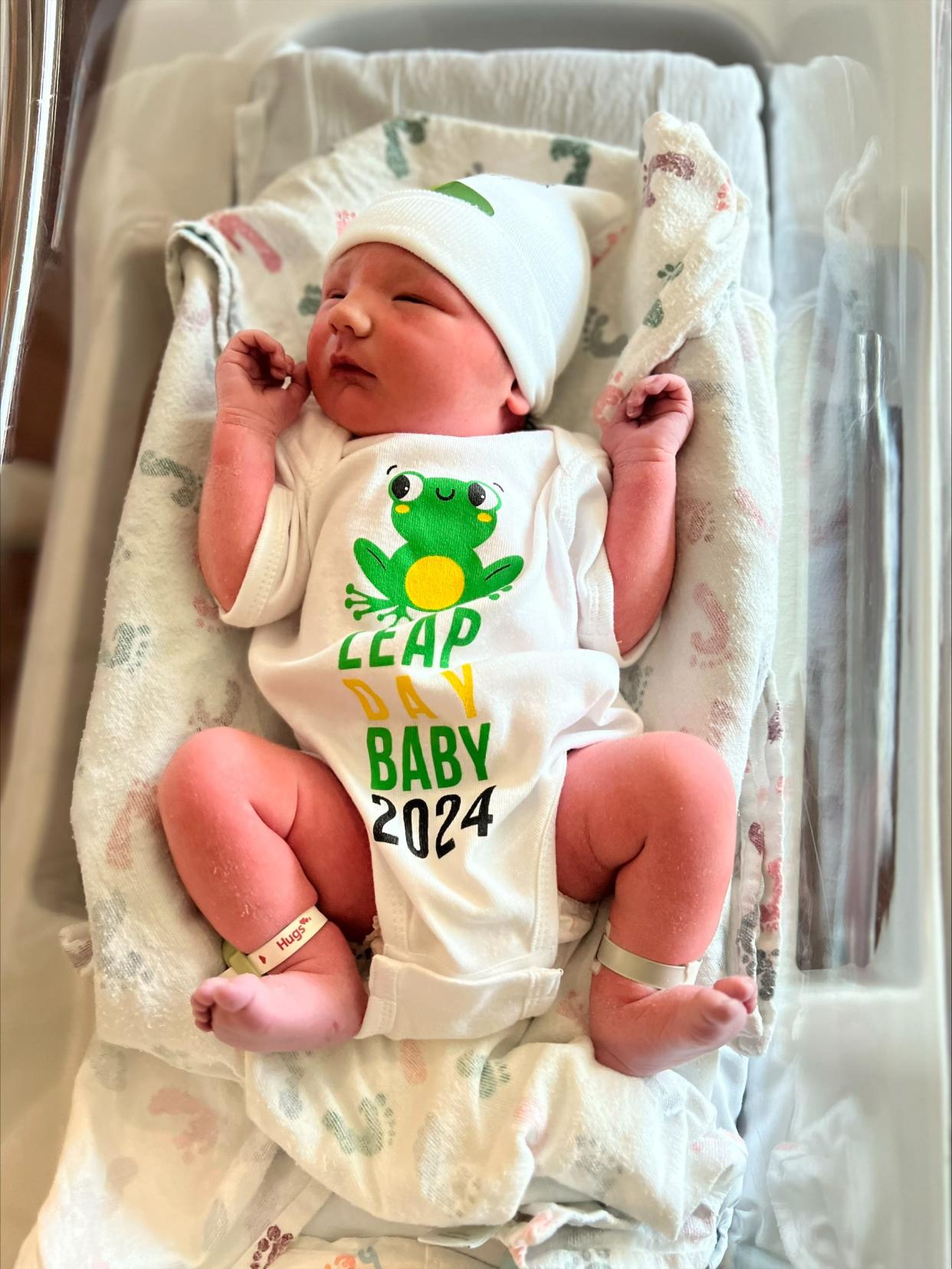One in 1,461: Ozarks parents welcome their leap day babies at local hospitals

Springfield and Branson hospitals welcomed 23 babies Feb. 29. There is one in 1,461 chance that a baby will be born on a leap day.
According to Mercy Hospital Springfield, there were 10 babies born on Feb. 29 and subsequently outfitted in onesies with frogs on them.
At Cox South and Cox Medical Center Branson, 13 babies were born, including a set of twins, according to the hospital.
The babies join about 5 million "leaplings" — people born on a leap day — worldwide. Here are some things to know about leap days.
More: Mercy Hospital welcomed its first baby of 2024, a girl, 12 hours into the new year
Why is leap day generally every four years?
Earth's orbit is the reason for our leap days: The amount of days it takes for the Earth to complete a full revolution around the Sun is actually not a whole number, but rather 365 days, 5 hours, 48 minutes and 56 seconds, according to the National Air and Space Museum.
In order to account for that extra time, we add an extra day to our calendar every four years.
If we didn't, "over a period of about 700 years our summers, which we’ve come to expect in June in the northern hemisphere, would begin to occur in December," wrote Bob Craddock in an article for the Smithsonian. Craddock is a geologist at the National Air and Space Museum's Center for Earth and Planetary studies.
Why would we skip a leap year?
The extra 5 hours, 48 minutes and 56 seconds doesn't exactly add up to 24 hours every four years. By adding a leap day, we make the calendar longer by 44 minutes, Craddock wrote. To avoid those 44 minutes every four years adding up and causing our calendar to drift from the seasons, we'll sometimes skip leap years.
Years divisible by 100, but not 400, are skipped: So we skipped leap years in 1700, 1800 and 1900 but not 2000. It will be 76 years before our next skipped leap year in 2100.
When are the next leap years?
The next leap years will be in 2028, 2032 and 2036.
This story contains reporting from USA Today.
Susan Szuch reports on health and food for the Springfield News-Leader. Follow her on X, formerly known as Twitter, at @szuchsm. Story idea? Email her at sszuch@gannett.com.
This article originally appeared on Springfield News-Leader: 23 babies, including twins, born on leap day in Ozarks hospitals

